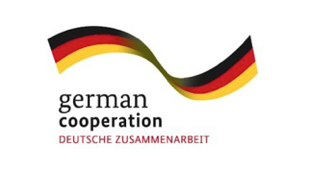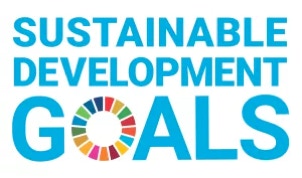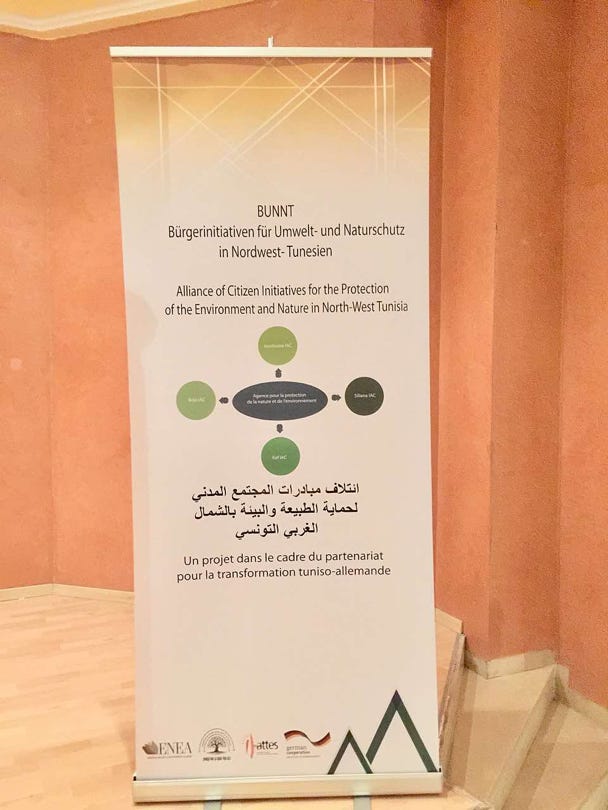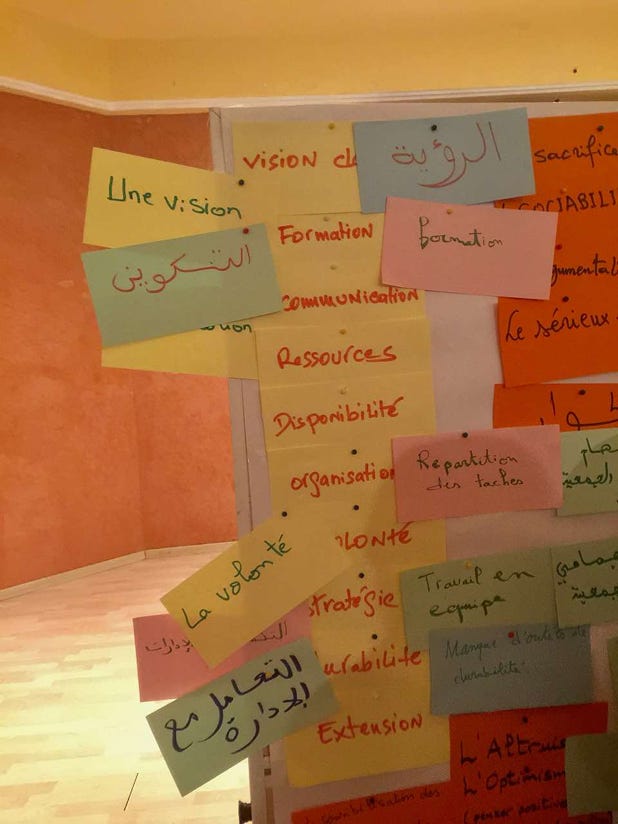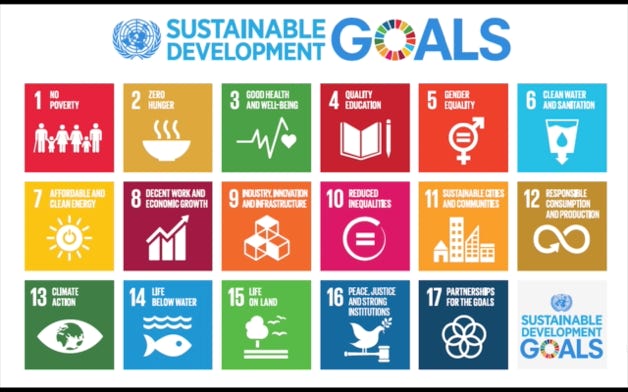
Foundation of an alliance of citizens' initiatives for environmental protection and nature conservation in north-west Tunisia - Experiences within the framework of the German-Tunisian transformation partnership
An evaluation report
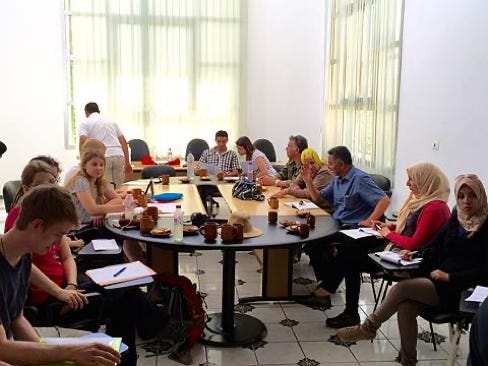
Initial situation
On 9 June 2019, an alliance (network) of nature conservation and environmental protection-oriented NGOs was founded in Tabarka in the governorate of Jendouba in northwestern Tunisia as the result of a self-organised development process. A mission statement (charter) and a statute were adopted, which was signed by 45 NGOs as founding members and by a further 15 representatives from state forestry and agricultural administrations as well as local bodies and administrations. Further NGOs will soon follow as network members after internal decision-making processes - a total of about 80 NGOs and GDAs are currently involved in the development of the Northwest Tunisian Agency for Nature and Environmental Protection.
The stakeholder-oriented network development process included representatives from municipal bodies, which emerged from a democratic election last year for the first time, as well as from municipal and state administrations, in order to establish a broad alliance for nature conservation and environmental protection. While the NGOs are statutory members of the agency, the representatives from the council bodies and administrative institutions elected for the first time last year are elected as members of an advisory board.
The BUNNT project is the fifth project in a row within the framework of the German-Tunisian Transformation Partnership, the success of which is based on the previous successful projects. With the gradual development of structural and personnel potentials in the Jendouba region, the conditions were created for the successful network development of so many singular associations (NGOs) in the areas of nature conservation and environmental protection in the very large area of four governorates in northwest Tunisia.
The alliance "Northwest Tunisian Agency for Nature and Environmental Protection" with its regional sub-centres in the four governorates of Beja, Kef, Jendouba and Siliana, which was created as a result of the network development process, is important in two respects - firstly for active nature and environmental protection and secondly for strengthening the stable development of civil society. In Tunisia, nature and the environment are threatened in many ways, which is increasingly perceived as a threat by civil society. Therefore, the democratic development of civil society must be stabilised in such a way that it cannot be jeopardised by the country's economic weakness, with high unemployment and extreme disparities between conurbations and rural areas.
The established network "Northwest Tunisian Agency for Nature and Environmental Protection" bundles the civil society commitment of currently more than 80 associations (NGOs) and stakeholders in the field of nature and environmental protection in four governorates Beja, Jendouba, El Kef and Siliana in northwest Tunisia by coordinating the four "information and action centres" formed in each governorate, which are each supported by twenty to thirty NGOs.
Project evaluation
The objectives and implementation principles described on the left are as follows
A. Promotion criteria of the German Foreign Office
B. Principles guiding ENEA’s actions for partnership-based project development processes
C. Sustainable Development Goals
the projects as a whole and in particular the BUNNT project should be evaluated. All five projects were based on each other and each made a step forward in achieving the goal of self-organized, democratic network development of NGOs for the protection of nature and the environment in Northwest Tunisia.
Predecessor projects 2013 - 2017
The first project "Ranger Camps" in 2013 essentially aimed at getting to know German and Tunisian young people, building trust and exchanging information on the state of the social situation in general as well as in the field of nature and environmental protection and climate protection.
The second project "UBBEZ" (2014/15) focused on a common task - the planning of a nature experience garden in the El Feija National Park in northwestern Tunisia.
The cooperation between the German-Tunisian partners on the one hand and the Tunisian partners among each other on the other was very successful and practice-oriented in this planning project. Above all, a trusting cooperation between the forest and national park administration and the Tunisian NGOs involved, as well as between different NGOs in the Kroumirie, was established.
In the third project "JURIK" (2016), the Nature Experience Garden was established and opened in the El Feija National Park. To this end, a licensing agreement was concluded between the National Park Administration (NLP) and our Tunisian partner organisations as well as a cooperation agreement between various NGOs and the NLP administration as a „responsible network“ for the Nature Experience Garden as well as for the development of a Junior Ranger programme. Two Junior Ranger groups were also founded, based on primary schools in the region.
The "JURIK II" project, which expired at the end of 2017, has led to a dynamisation of civil society contacts between the various NGOs in the Jendouba region in northwestern Tunisia. In the course of the project work, the various environmental groups in the region were invited as guests to the project conferences, which led to an increasing interest in formal networking. As a result of the "JURIK II" project, about 15 environmental groups have come together and developed and concluded a joint cooperation agreement. A "Jendouba Information and Action Center" was founded and opened in Jendouba, from where the NGOs have been developing and carrying out their environmental and nature conservation information work and corresponding activities in the Jendouba governorate since then. Following the first local elections in Tunisia in the spring of 2018, JIAC was able to make an effective impact as a "voice for nature and environmental protection" in civil society.
Assessment
The promotion criteria within the framework of the cultural and educational policy of the German Foreign Ministry were step by step fulfilled in the successive projects from Ranger Camps to JURIK II. The goals
- Strengthen the multiplier effect and knowledge transfer between civil society actors, e.g. through contributions to local and regional networking.
- Strengthening the motivation of citizens to participate in political, social, cultural and economic processes.
were achieved through all projects. The other goals
- Support the establishment and expansion of civil society structures, e.g. through qualification, further training and strengthening of institutional structures of civil society organisations as well as the promotion of inclusive civil structures within societies.
- Expanding opportunities for social participation, especially of women and young people, e.g. through measures for self-empowerment/self-determination, promotion of young talent.
have already been implemented to some extent in the UBBEZ and JURIK projects and then fully in the JURIK II project.
From the guiding principles of ENEA, the common good and the principle of gender justice were successfully applied in all projects. With the exception of the Ranger Camps project, the participatory approach was also implemented in all other projects.
The integrated approach to action and the sustainable approach - environment and society - were also successfully practiced in the JURIK, JURIK II and BUNNT projects. Consulting, moderation, networking from a single source and capacity building with regard to learning opportunities for various target groups in nature conservation and environmental protection were successfully implemented in these projects.
It was only in the JURIK II and BUNNT projects that the objectives of the holistic approach to action and the community approach could be effectively developed and successfully implemented in regional and supra-regional contexts.
As a result of the establishment of civil society structures (information and action centres as well as the North-West Tunisian Agency), individual learning could be linked to organisational learning and internal and external cooperation potentials were created between NGOs among themselves and with other (civil society) organisations and institutions.
The concept of the learning organisation could finally be realised in the projects JURIK II in the regional and in the project BUNNT both in the regional and in the supraregional context in which multipliers could be won and qualified as "change agents", who will drive the future development in a self-organised way.
Out of the objectives for sustainable development (SDGs) of the United Nations, SDG 4 "Education for All" was successfully pursued and implemented in all projects. The SDGs 16 "Building effective, accountable and inclusive institutions at all levels" and 17 "Strengthening global partnerships" were implemented with particular success in the JURIK II project (and later in the BUNNT project).
BUNNT - Alliance of Citizens' Initiatives for Environmental Protection and Nature Conservation in Northwest Tunisia
In the course of the project period, associations (NGOs) from the neighbours - governorates Le Kef, Siliana and Beja - also showed interest in the work in the governorate of Jendouba. This was supported by initiatives of the Tunisian government to motivate the country's NGOs to participate in Tunisia's civil society development at regional and national conferences.
The approach of the project "BUNNT - Alliance of Citizens' Initiatives for Environmental Protection and Nature Conservation in North-West Tunisia“ consisted in bundling the civil society activities of NGOs in the governorates of El Kef, Siliana and Beja as well as Jendouba in North-West Tunisia. This project was not a "self-runner" since Tunisia's civil society situation is very complicated on the road to democratisation. This project was approved by the Ministry of Foreign Affairs at the end of August 2018. The project duration was adjusted from 01.09.2018 to 30.06.2019.
The project modules planned for the project development process "BUNNT - Alliance of Citizens' Initiatives for Environmental Protection and Nature Conservation in North-West Tunisia - Development of a network of NGOs for environmental protection and nature conservation in Northwest Tunisia" were all very successfully implemented in terms of organisation and content.
Results of the "BUNNT" project
The aim of promoting the project was to create an interregional alliance of initiative groups and associations. In concrete terms, information and action centres for cooperating NGOs on environmental protection and nature conservation are to be established in the governorates of Le Kef, Beija and Siliana. An information and action centre in Jendouba ("JIAC") had already been established in the predecessor project JURIK II. At the same time, an interregional network "Alliance of Citizens' Initiatives for Environmental Protection and Nature Conservation in North-West Tunisia" with a central coordination office in Jendouba, attached to and supported by the existing JIAC, is to be established. Various training measures for volunteers and basic office equipment were also financed from the subsidies. As a result, a professional association was formed in 2019, which is now continuing its work on its own.
The achievement of the objectives can be seen from the following indicators:
- The training and qualification programme for experts and young staff (NGO representatives) has been carried out according to the programme and as described above. The participating NGO representatives from Tunisia have been highly committed to the programme and have then successfully used the acquired competences as multipliers in the sense of the network development process in Northwest Tunisia.
- The establishment of the information and action centres for cooperating NGOs on environmental protection and nature conservation in the governorates of Beija, El Kef and Siliana was provisionally completed in June 2019 with the official opening of these centres "BIAC", "KIAC" and "SIPEC".
- The establishment of the interregional network "Alliance of Citizens' Initiatives for Environmental Protection and Nature Conservation in North-West Tunisia" with a central coordination office in Jendouba was sealed by the adoption of a mission statement and statutes for the "North-West Tunisian Agency for the Conservation of Nature and the Protection of Environment" on 9 June 2019. The "North-West Agency" is based in Jendouba and is spatially linked with the JIAC (Jendouba Information and Action Centre).
- The concrete independent continuation of the further work of the network and the information and action centres beyond 2019 (through the independent acquisition of external funds) will be supported by the stakeholder-oriented network development process. This included representatives from municipal bodies, which emerged for the first time last year from a democratic election, as well as from municipal and state administrations, in order to establish a broad alliance for nature conservation and environmental protection. While the NGOs are statutory members of the Agency, the representatives from the council committees and administrative bodies are elected as members of an advisory board.
Strengthening voluntary work
This alliance "Northwest Tunisian Agency for Nature and Environmental Protection" is important in two respects - firstly for the active protection of nature and the environment and secondly for the strengthening of a stable development of civil society. In Tunisia, nature and the environment are endangered in many ways, which is increasingly perceived as a threat by civil society. The strengthening of voluntary work should stabilise the democratic development of civil society in such a way that it could not be jeopardised by the country's economic weakness with high unemployment and extreme disparities between conurbations and rural regions.
The founded network "Northwest Tunisian Agency for Nature and Environmental Protection" bundles civil society, honorary commitment of currently more than 80 associations in the field of nature and environmental protection (NGOs) in four governorates Beja, Jendouba, El Kef and Siliana in Northwest Tunisia by coordinating the four "information and action centres" formed in each governorate, which are each supported by twenty to thirty NGOs.
Sustainability
The forthcoming development work of the networks in the individual governorates and above all at the supraregional level is decisive for civil society development and not quite straightforward in view of the framework conditions. It is planned that the network will be entered in the national register of associations in Tunisia, which is very time-consuming for formal and practical reasons. After its foundation in June 2019, the regular elections for the presidency as well as the elaboration of work plans and personnel commitments are now on the agenda.
Evaluation
In the BUNNT project, all objectives of the promotion criteria of the German Foreign Office, the guiding principles for partnership-based project development processes of ENEA and the SDGs 4, 16 and 17 have already been achieved to a high degree. While these goals had already been implemented very well at regional level in the JURIK II project, thanks to the highly motivated, committed and, after one year of successful practice, very experienced support of "JIAC" in the BUNNT project, they were implemented professionally in the network development process and led to success. This is illustrated by the adoption of mission statements for nature and environmental protection-oriented work as well as statutes for work both at the regional levels in the governorates and at the supra-regional level in north-western Tunisia, each with personnel responsibilities.
Final assessment
Civil society structures were created through qualification, further training and structural strengthening of many NGOs. This opened up opportunities for social participation, especially for women and young people who had been initiated by self-empowerment measures in the network development process. The fact that civil society multipliers were promoted, encouraged and empowered to advance the development process in a self-organised way played a major role in this.
In connection with the democratic, communal structures that emerged only last year, the motivation of citizens (NGO members) to participate in political, social, cultural and economic processes was also massively promoted.
As a result of the guiding principles for partnership-based project development processes, civil society structures could be created that promote sustainable development in the sense of achieving the goals for sustainable development (Sustainable Development Goals) of the United Nations.
Translation from German using www.DeepL.com/Translator
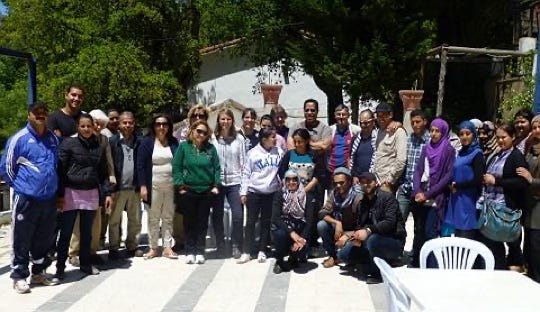
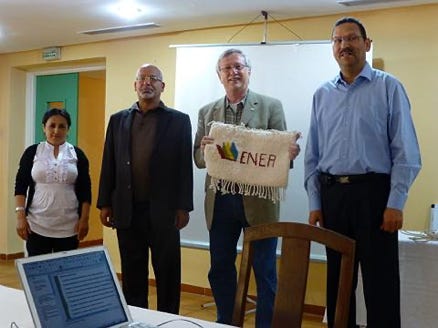
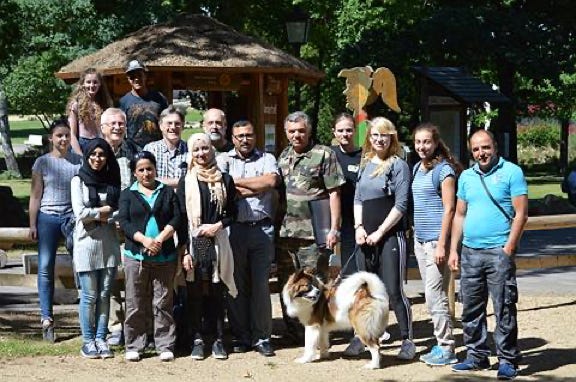
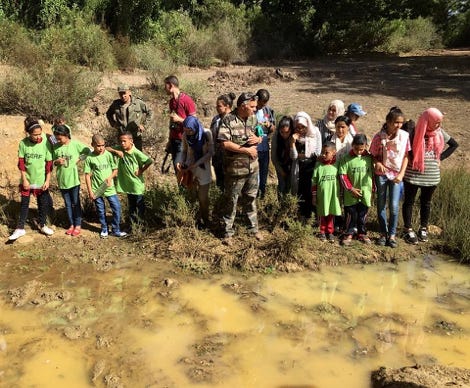
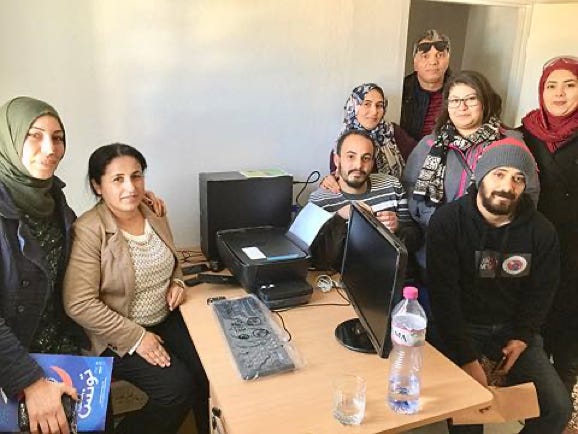
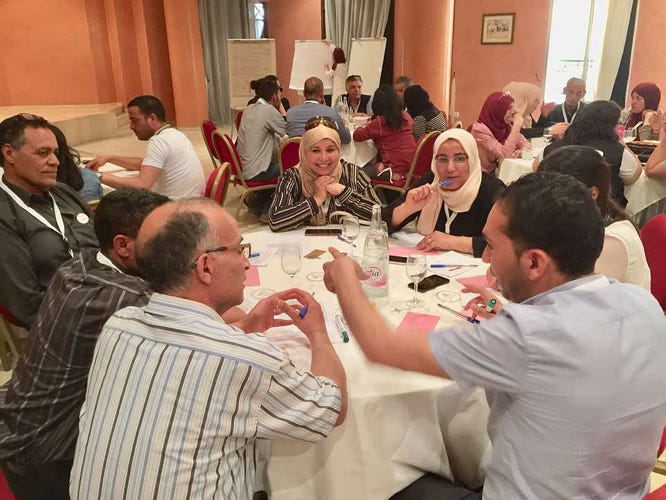
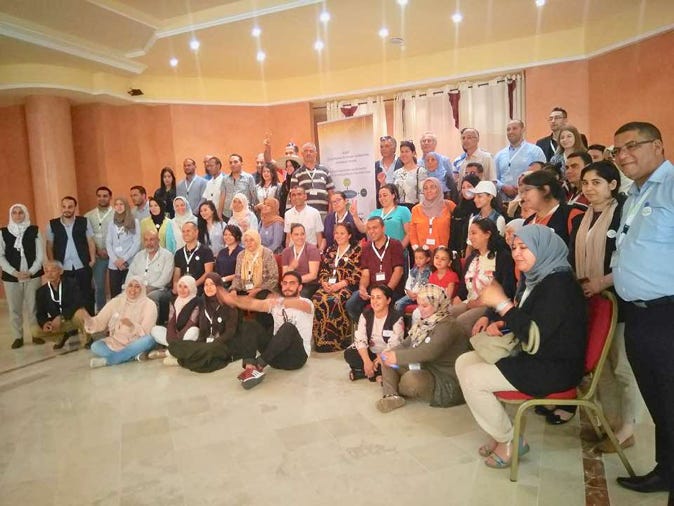
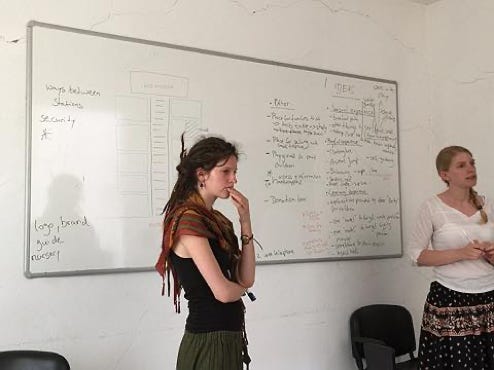
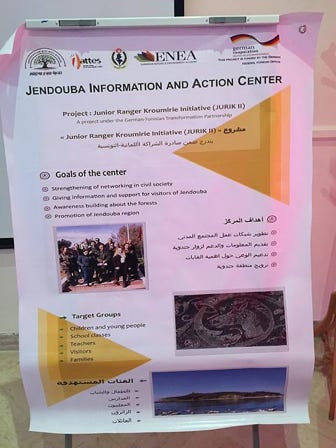
Evaluation criteria
A. Promotion criteria within the framework of foreign cultural and educational policy (FCEP) of the German Foreign Office
- The following overall objectives are to be pursued within the framework of the promotion criteria within the framework of the Foreign Cultural and Educational Policy:
- Supporting the establishment and expansion of civil society structures, e.g. by qualifying, further training and strengthening institutional structures of civil society organisations as well as promoting inclusive civil structures within societies.
- Expanding opportunities for social partici-pation, especially of women and young people, e.g. through measures for self-empowerment/self-determination, promotion of young talent.
- Strengthen the multiplier effect and knowledge transfer between civil society actors, e.g. through contributions to local and regional networking.
- Strengthening the motivation of citizens to participate in political, social, cultural and economic processes.
These objectives were pursued in all previous projects in different and evolving forms. These objectives of promoting civil society participation through FCEP instruments are an integral part of ENEA's guiding principles for partnership-based project development processes, which are expressed in the following guiding principles.
B. Principles for partnership-based project development processes
consist of the following guiding principles for ENEA:
Public welfare approach and gender justice
Support of organisations (NGOs, administrations, companies, etc.) for self-organisation in civil society development for the realisation of interests oriented towards the common good as well as for the creation of opportunity and participation equality between the sexes.
Participation-oriented approach
To perceive the organisation as an active partner - the responsibility of the organisation members can only be achieved if they are all involved in the necessary development processes. This involves the ability of both the groups as a whole and all group members to organise themselves individually as well as the utilisation of the potentials of all organisational members at all organi-sational levels.
Integrated approach to action
All project activities from a single source - interlocking of qualification and counselling, moderation, support, leader-ship, learning transfer and evaluation in the entire transformation process of the organisation with the participation of all organisational members.
Holistic approach
To see the organisation or the company as a learning organisation - connection of individual with organisational learning processes, i.e. a transfer from the individual learning processes into the knowledge base of the organisation must take place. Organisational learning must therefore be more than the sum of individual learning.
Sustainable approach - environment and society
To bring about lasting solutions and concepts as well as "autonomy" as the goal of the development process - Enabling the organisation to autonomously mobilise its own potentials for change, creating relative independence from external experts. Permanent social solutions can only exist in an intact environment and nature. For this reason, support is given above all to organisations that make a contribution to the conservation of nature and biodiversity as well as to environmental protection and climate protection.
Community approach
Creating synergies through cooperation - new structures arise from the perception of internal and external cooperation, with other groups in the same place or region, with similar objectives or with other supportive approaches.
Together with all its cooperation partners, ENEA pursues an approach that sees project development as an open, collaborative learning process, committed to the principle of sustainability and gender equality in opportunity and participation. In this respect, learning - sustainability - gender justice are at the forefront as models that are both individually and organisationally significant. All these approaches are summarised in the "Learning Organisation" mission statement, which ENEA seeks to achieve in its projects.
Learning organisation
The learning process takes place at two interconnected levels - a strategic or structural level and an operational, learning goal-oriented level. The "learning organisation" is the structural (and strategic) prerequisite for effectively achieving the organisational objectives, e.g. in terms of nature, environment and climate protection, with regard to relevant target groups at the operational level.
ENEA and its cooperation partners support groups and NGOs by providing advice, moderation and networking. The aim is to change the awareness of the entire organisation with all its members at all levels. Success criteria are the training and coaching of "change agents", "multipliers" and "champions" in the organisations as drivers of the mission statement "learning organisation".
If this succeeds in motivating and empowering individuals as driving forces for organisational change, then each "learning organisation" itself becomes a training provider to a certain extent, who maintains its capacity for innovation by integrating learning and working with the help of internal learning and innovation consultants.
C. Goals for sustainable development
(Sustainable Development Goals - SDG)
The SDGs outline a new and ambitious global agenda to reduce poverty and hunger, improve health, empower people, protect the planet and more. Real progress will be difficult to achieve unless all children and youth worldwide receive quality education. Therefore, education plays a central role in the SDGs. Data, especially from the UNESCO World Education Report, clearly show that education is essential to the success of all 17 sustainable development goals.
By emphasising the role of learning and education, ENEA is pursuing Objective 4 in particular, and Objectives 16 and 17 of the United Nations SDGs further more.
SDG 4: Ensuring education for all - inclusive, equitable and quality education and promote lifelong learning opportunities for all.
Education equips learners of all ages with the necessary skills and values to be responsible citizens of the world. These include respect for human rights, gender equality and environ-mental sustainability. Investing in education and strengthening the education sector are key to the development of a country and its people.
SDG 16: Peace, justice and strong institutions. Promoting peaceful and inclusive societies for sustainable development, giving all people access to justice and building effective, accountable and inclusive institutions at all levels.
Education helps people understand democracy, promotes the tolerance and trust that underpin it, and motivates people to participate in politics. Education improves people's understanding of politics and their opportunities to participate in it.
Education increases the advocacy of democracy, especially where democratic transitions have recently taken place. Educated people are more likely to vote.
SDG 17: Strengthening means of implementation and global partnership - Strengthening means of implementation and revitalising the global partnership for sustainable development
The 17 objectives can only be achieved through a strong global partnership. Governments, civil society and business must work together to implement them. "Leave no one behind" is the overarching principle of Agenda 2030. UN member states are committed to reaching those who are furthest behind first....
